sugar maple
sugar maple - Acer saccharum subsp saccharum
The maple is Canada’s national tree, and it is likely that the sugar maple was the source of inspiration for our flag! The strong, fine-grained wood of this species is valued for furniture, instruments, and panelling, but sugar maple is also iconic for producing maple syrup. Sugar maple sap has the highest sugar content of Ontario maple species, at about 3-6%. This means that it takes 30 to 40 L of sap to make 1 L of syrup! This shade-tolerant maple is often a dominant canopy species throughout the northeastern hardwood forests of North America.
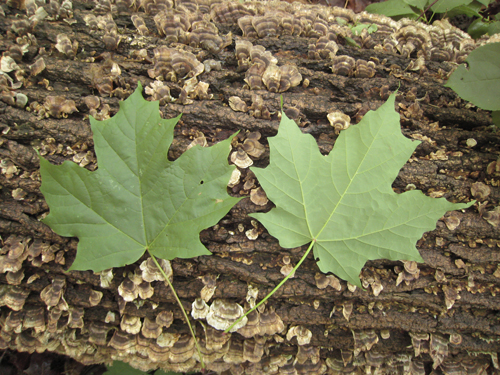
Note the 5 palmate lobes with rounded “U” shaped notches – red maple has sharp “V” shaped notches. Photo by Brian Lacey.
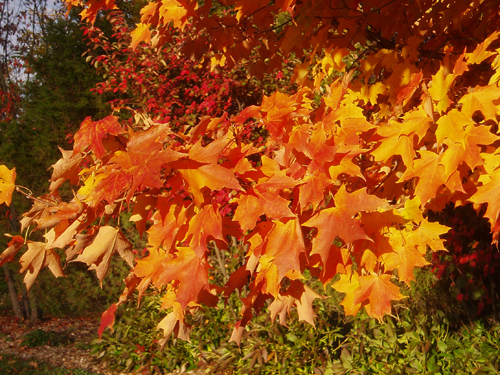
The sugar maple is responsible for most of the orange colours in our fall leaf palette.
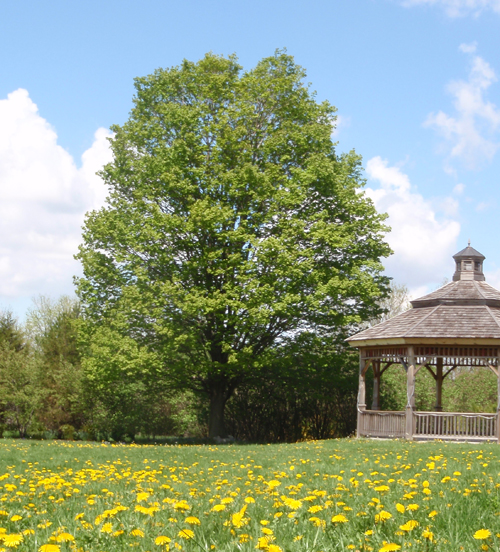
This quintessential Canadian tree grows up to 35m tall with a dense rounded canopy. This specimen is growing beside our gazebo near The Arboretum Centre.
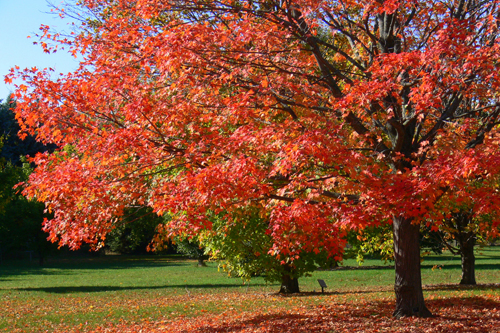
Another fall colour shot. Photo by Alan Watson.
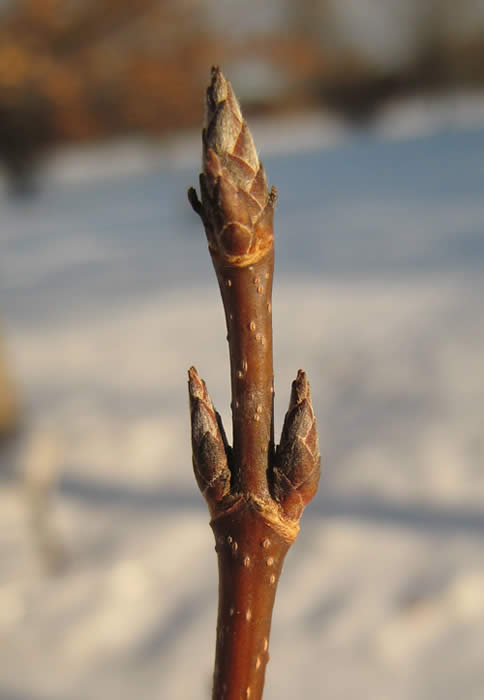
Sugar maple twig. Photo by Brian Lacey.
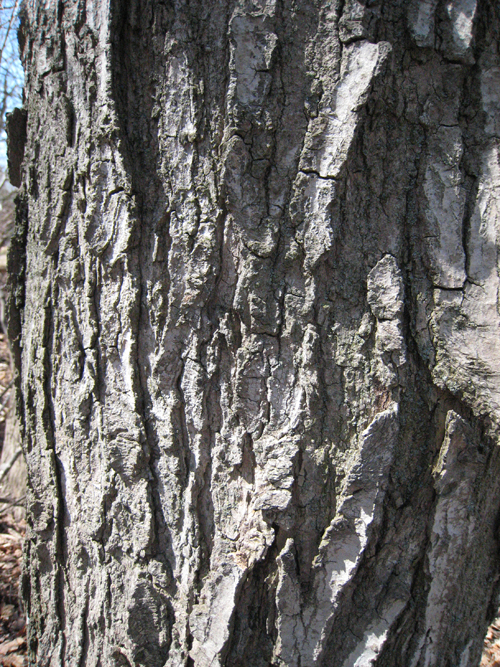
The grey, plated bark of a sugar maple. Photo by Brian Lacey.
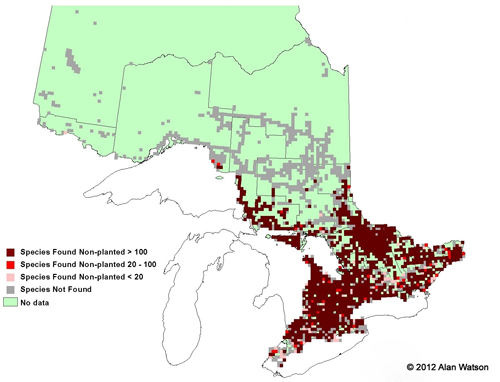
Ontario Tree Atlas map of non-planted sugar maples. 1995-1999.
References
Farrar, J.L.. 1995. Trees in Canada. Fitzhenry & Whiteside Ltd. Toronto. ON. 504 pp.
Kershaw, L. 2001. Trees in Ontario: Including tall shrubs. Lone Pine Publishing. Edmonton. AB. 240 pp
Muma, W. 2011. Ontario Trees and Shrubs. [Online] Available: www.ontariotrees.com
OMNR, 2011. Ontario Ministry of Natural Resources: Ontario Tree Atlas. [Online] Available: http://www.mnr.gov.on.ca/en/Business/ClimateChange/2ColumnSubPage/267027.html
OMNR, 2008. Ontario’s Biodiversity: Species at Risk.